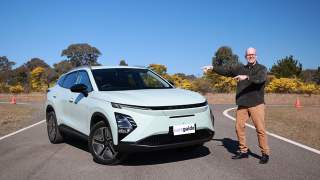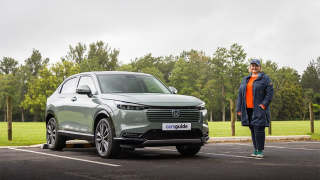
Sydney to Melbourne hands-free! Mercedes launching "highway" autonomy in 2020
- Mercedes-Benz S-Class
- Mercedes-Benz S-Class 2019
- Mercedes-Benz News
- Mercedes-Benz
- Prestige & Luxury Cars
- autonomous
- Technology

Mercedes-Benz is about to launch level three autonomy-equipped vehicle, promising the next generation S-Class - due next year - will tackle freeway driving all on its own.
But while level three autonomy is around the corner, the brand concedes true level four or level five autonomy (or "robo-taxis") remains years away.
That’s the word from the brand’s research and development chief Ola Kaellenius, who will take over as head of the company next week.
Speaking at the launch of the brand’s new EQC electric SUV, Kaellenius said the new generation of the brand's flagship model would take the next step on the brand’s autonomous journey.
Read More: Mercedes-Benz EQC 2019 review
Driverless technology is measured in five levels. Level one means the car can control a single function automatically, like cruise control, while level two allows for a driver to temporarily remove their hands and feet from the controls. The latter already exists in Mercedes’ (and other manufacturer) product.
But level three reduces the driver to an in-case-of-emergency proposition on some roads, in this instance highways, with driver intervention only required if an accident is imminent. It means Mercedes product equipped with the technology could autonomously along highways for as long as a driver wanted them to.
“For the past few years we have had two paths going on at the same time,” Kaellenius says.
"One is the development of our driving assistance systems. We’re now on a level two-plus system, and it is our intent with the next generation S-Class to go for it with level three in a highway scenario.
“For a level four, level five robo-taxi scenario; we have a project going on with Bosch, but when it will be commercially viable is a little bit unclear at this time.
"But we are pushing hard technically in the next two to three years to have products that can do it, then we’ll see how it develops.
“It is the most sophisticated technical problem we have ever tried to solve."










Comments